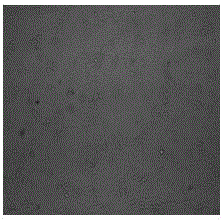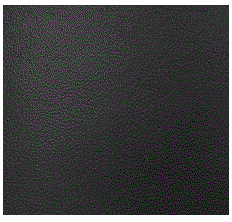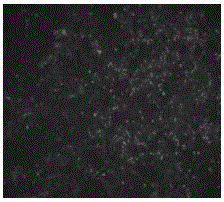Novel PCV (porcine circovirus) and cell strain co-culturing with novel porcine circovirus
A porcine circovirus and cell strain technology, applied in the direction of viruses, animal cells, viruses/bacteriophages, etc., can solve the problems of cell pathology and poor vaccine quality, and achieve the effects of reducing production and cultivation, increasing virus titer, and reducing operation links
- Summary
- Abstract
- Description
- Claims
- Application Information
AI Technical Summary
Problems solved by technology
Method used
Image
Examples
Embodiment 1
[0049] Example 1 Biological material source, preservation and culture medium
[0050] The porcine kidney cell line PK15 comes from the China Center for Type Culture Collection, with the collection number CCTCC GDC061, and researchers can purchase it from CCTCC
[0051] The PCV2 virus comes from independent isolation, and the screened porcine circovirus GY-PCV2 strain is preserved in the China Center for Type Culture Collection, and the preservation number is CCTCC NO:V201660. The deposit date is December 5, 2016.
[0052] GY-PCV2-PK15 was deposited in the China Center for Type Culture Collection, the preservation number is CCTCC NO: C2016201, and the preservation date is December 5, 2016.
[0053] Medium MEM+10%FBS+1% double antibody, maintenance medium MEM+2%FBS+1% double antibody
Embodiment 2
[0054] Example 2: Isolation and sequencing of porcine circovirus GY-PCV2 strain
[0055] (1) Aseptically remove the inguinal lymph nodes of pigs suffering from porcine circovirus disease with obvious clinical symptoms, and wash them more than 7 times with a mixture of 20,000 units / ml penicillin and 200ug / ml streptomycin , and smashed into a homogeneous slurry, centrifuged, filtered and sterilized to obtain the disease feed liquid;
[0056] (2) Mix the disease feed solution with DMEM maintenance medium containing 2% serum 1:1;
[0057] (3) Inoculate the mixture onto PK-15 cells in logarithmic growth phase for infection;
[0058] (4) Discard the inoculum after infection and culture for 24 hours, add a little 3mM D-glucosamine to overlay the cells, continue to culture for 2 hours, wash 5 times with PBS, add DMEM maintenance solution with 2% serum to continue culture.
[0059] (5) After culturing for 72 hours, take the supernatant and detect it with a PCV2-specific PCR detection...
Embodiment 3
[0090] Example 3. Screening and obtaining of PK15 cells producing PCV2 virus
[0091] (1) GDC061 porcine kidney cell line PK15 purchased from CCTCC to the logarithmic growth phase;
[0092] (2) Inoculate the PCV2 mutant strain into the pig kidney cell line PK15, culture for 24 hours, discard the supernatant, and treat the cells with 3 mmol of D-glucosamine in PBS solution for 2 hours, discard the D-glucosamine in PBS solution, and replace with PBS Cells were washed 5 times. Change the maintenance solution to culture the infected cells for 72 hours, take the supernatant, and use the PCV2-specific fluorescence quantitative PCR detection kit to measure PCV2. When the measured CT value is lower than or equal to the positive control CT value, it proves that at this time PK-15 cells already carry PCV2 PK-15 mixed cells;
[0093](3) Digest with trypsin, add medium to neutralize, centrifuge, use medium to adjust the cell suspension at a cell density of 1-10 cells / ml, inoculate the c...
PUM
 Login to View More
Login to View More Abstract
Description
Claims
Application Information
 Login to View More
Login to View More - R&D
- Intellectual Property
- Life Sciences
- Materials
- Tech Scout
- Unparalleled Data Quality
- Higher Quality Content
- 60% Fewer Hallucinations
Browse by: Latest US Patents, China's latest patents, Technical Efficacy Thesaurus, Application Domain, Technology Topic, Popular Technical Reports.
© 2025 PatSnap. All rights reserved.Legal|Privacy policy|Modern Slavery Act Transparency Statement|Sitemap|About US| Contact US: help@patsnap.com



